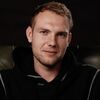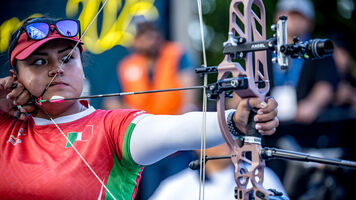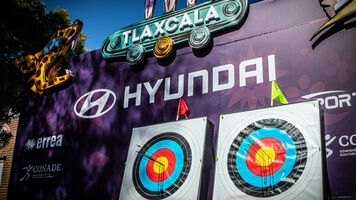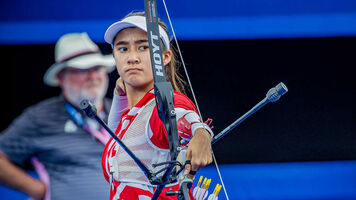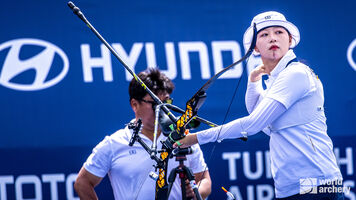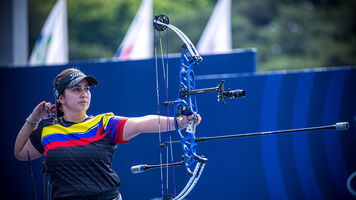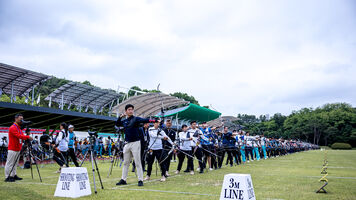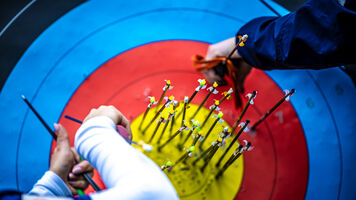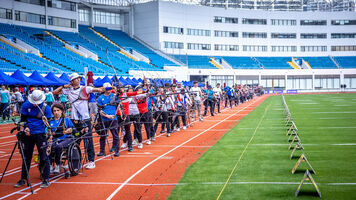Gwangju is a true archery city
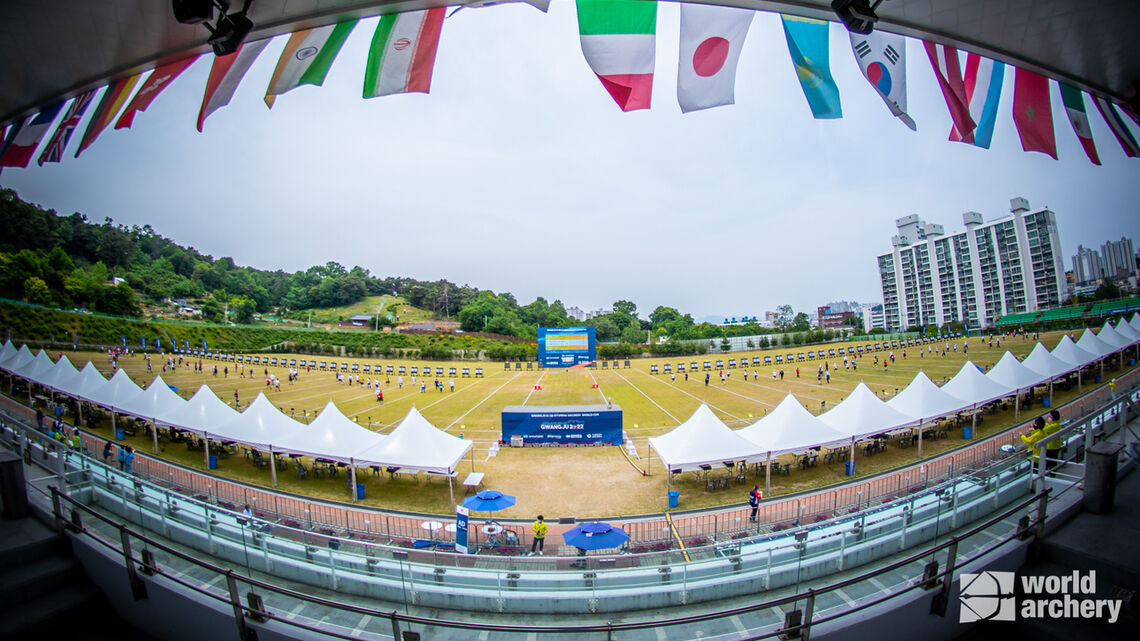
Gwangju – the city of An San, Ki Bo Bae, the host of the upcoming 2025 World Archery Championships and where the second stage of this year’s Hyundai Archery World Cup just finished.
It was the first leg of the circuit to take place in Korea since 2007, when the season opener was held in Ulsan.
The top seed in the recurve men’s competition last week, Kim Je Deok, was only three years old and had no idea he’d be shooting a bow at the Olympics when that last event happened.
In fact, of all the athletes who competed in Gwangju, only a few remember the competition 15 years ago.
Athletes like Brady Ellison, who was eliminated in the third round, and Martin Damsbo, who seeded top, but could not reach the quarterfinals.
And Thomas Aubert, who’s now employed as World Archery’s head of events and marketing, who defeated 2008 Olympic silver medallist Park Kyung-Mo, in the second round. (Park was also in Gwangju this week as an observer.)
Many things have changed since the international circuit last visited Korea. This season, though, the world’s best were back in the country of the legendary Oh Jin Hyek, fighting for Hyundai Archery World Cup stage medals and circuit ranking points.
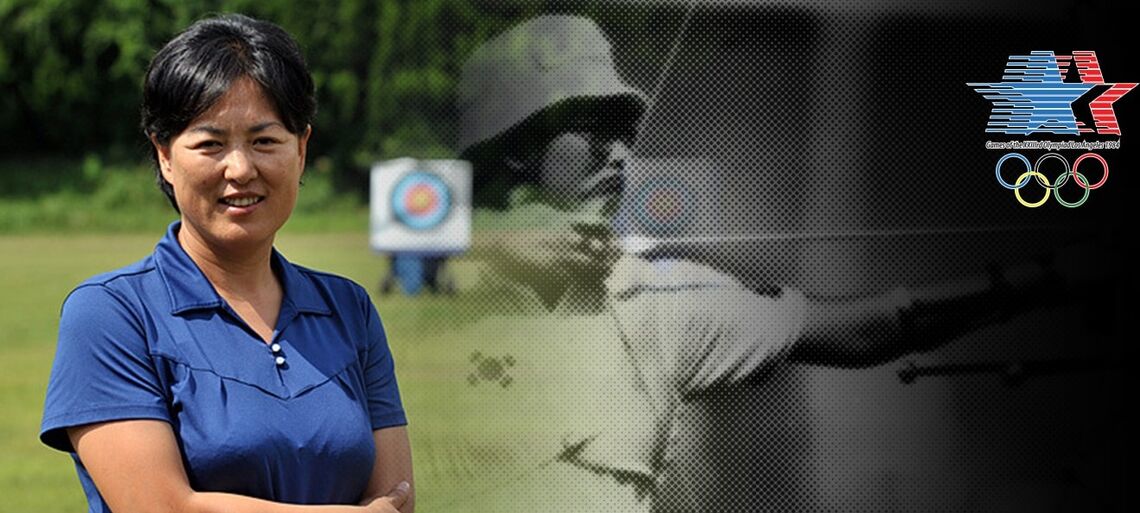
It is hard to find a city with a better soul and traditions for archery to host an international event in Korea.
“Gwangju makes all the best archers in Korea. It’s the best city for archery,” says Jong Chan Yun, president of the Gwangju International Archery Centre.
“If we talk about athletes from this city, we have the first female Olympic medallist from Korea in archery. Her name is Seo Hyang-Soon.”
Hyang-Soon won that first medal – individual gold – back at the 1984 Olympic Games in Los Angeles and many more followed have followed in her footsteps.
The list of Olympic medallists who are from or have trained in Gwangju is impressive: Jan Yong-Ho at Sydney 2000 and Athens 2004, Joo Hyun Jung at Beijing 2008, Ki Bo Bae at London 2012 and Rio 2016, Choi Misun also at Rio 2016, and last but absolutely not least, An San at Tokyo 2020.
Archery in Korea has a structure that is very different to other countries.
Students begin training and competing in elementary, then middle and then high school teams, before moving to a university squad and, finally, a professional team, should they wish (and be good enough) to make archery their career. Professional teams are run by companies or city, state or regional authorities.
There are at least two significant teams in Gwangju – the city archery federation and that of Gwangju Women’s University.
The Gwangju International Archery Centre, which hosted the qualification and elimination phases of last week’s tournament, is run by the city. It hosts a professional team, para team and also welcomes casual archers.
It’s a legacy facility, built for the 2015 Universiade held in Gwangju – and dedicated to one of the city’s famous archery alumni.
“The range remains as a legacy from the Universiade,” explains London 2012 Olympic Champion Ki Bo Bae, whose name adorns the entrance. “When you think about it, the fact that there's an archery range of this calibre good enough to host international competitions in Gwangju is something I am very proud of.”
Now a member of the city team, Bo Bae was once a member of the Gwangju Women’s University squad, as was Choi Misun – who went on to win the Hyundai Archery World Cup stage – and as is the reigning Olympic Champion.
The finals venue in Gwangju was constructed next to the university team’s training ground, which is smaller – 10 targets wide – and solely dedicated to practice, rather than competition.
“It’s a huge honour that archers with Olympic dreams wanted to follow in my footsteps and chose the same university as me,” said Ki, ahead of the start of last week’s competition. “I am looking forward to young archers here seeing An San, and inspiring them to dream of winning gold as well.”
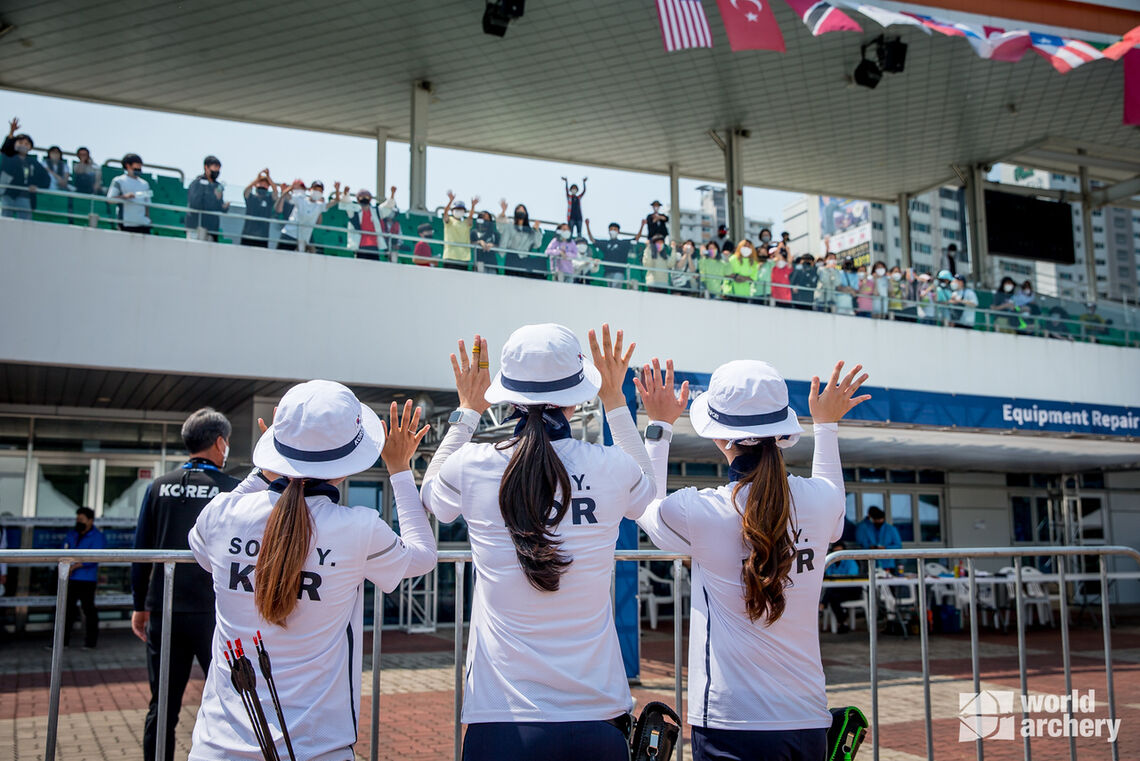
The Gwangju International Archery Centre was not the first range dedicated to archery in the southern metropolitan city.
“After the Olympics in Los Angeles in 1984, we built the Seo Hyang-Soon Centre,” explained Chan Yun. That facility actually started the tradition, in Korea, of archery fields being built and dedicated to each Olympic Champion. “We had a lot of domestic competitions in that centre and they were held there before the 2015 Universiade.”
The new facility isn’t just used by local archers.
“Chinese and French archers come here for training camps,” Chan Yun explained. “Generally, lots of pro teams come to practice here.”
It also hosted selection trials for the Korean team this season. But the field is not just for the pros.
“Anybody from Gwangju can come to this centre and learn how to shoot,” says Chan Yun with a smile on his face. Archery isn’t available as a participation sport at most pro team grounds in Korea.
“There are coaches for the public, plus students and middle school students come here for physical education classes. Young people can experience archery programmes. There is also a mature club in Gwangju so its club members can exercise in the centre.”
“We give a lot of experience to any type of person in Gwangju.”
Archery for anyone and everyone.
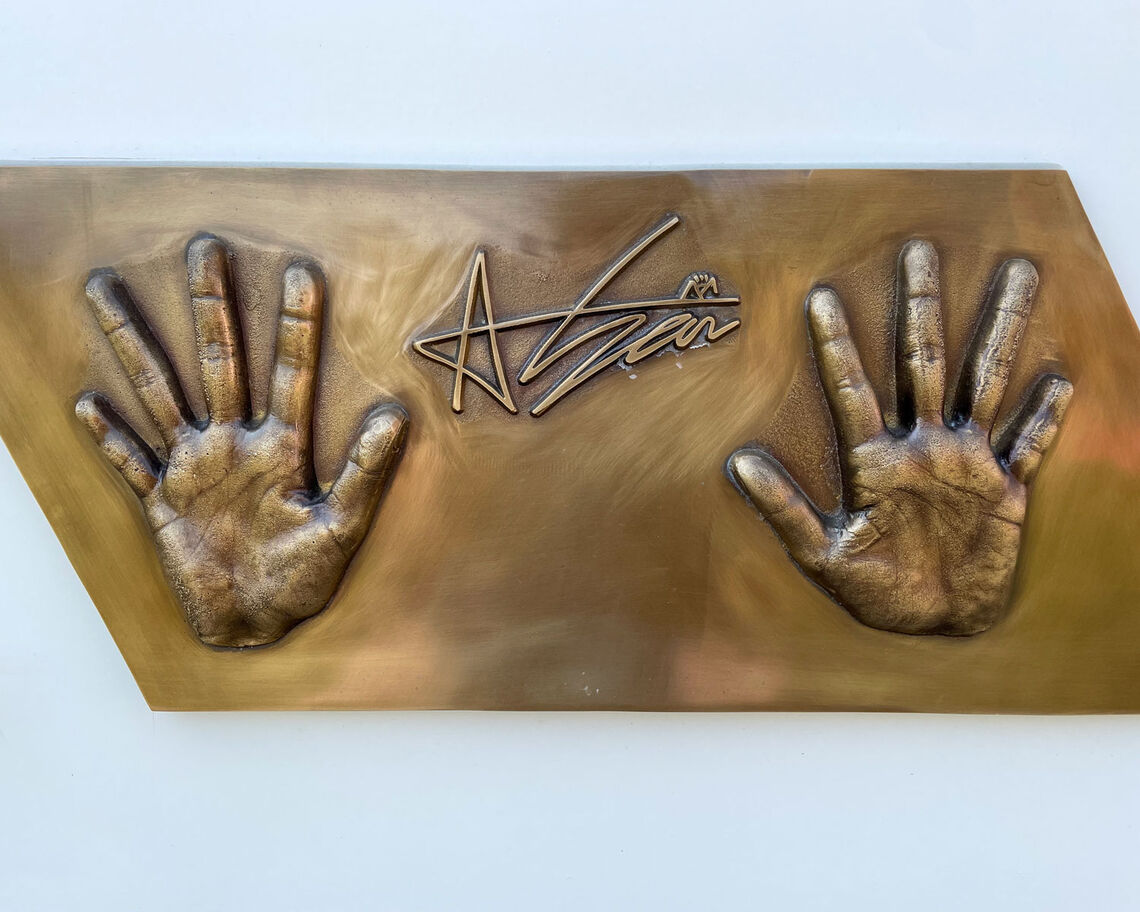
Handprint of Tokyo 2020 triple gold medallist An San.
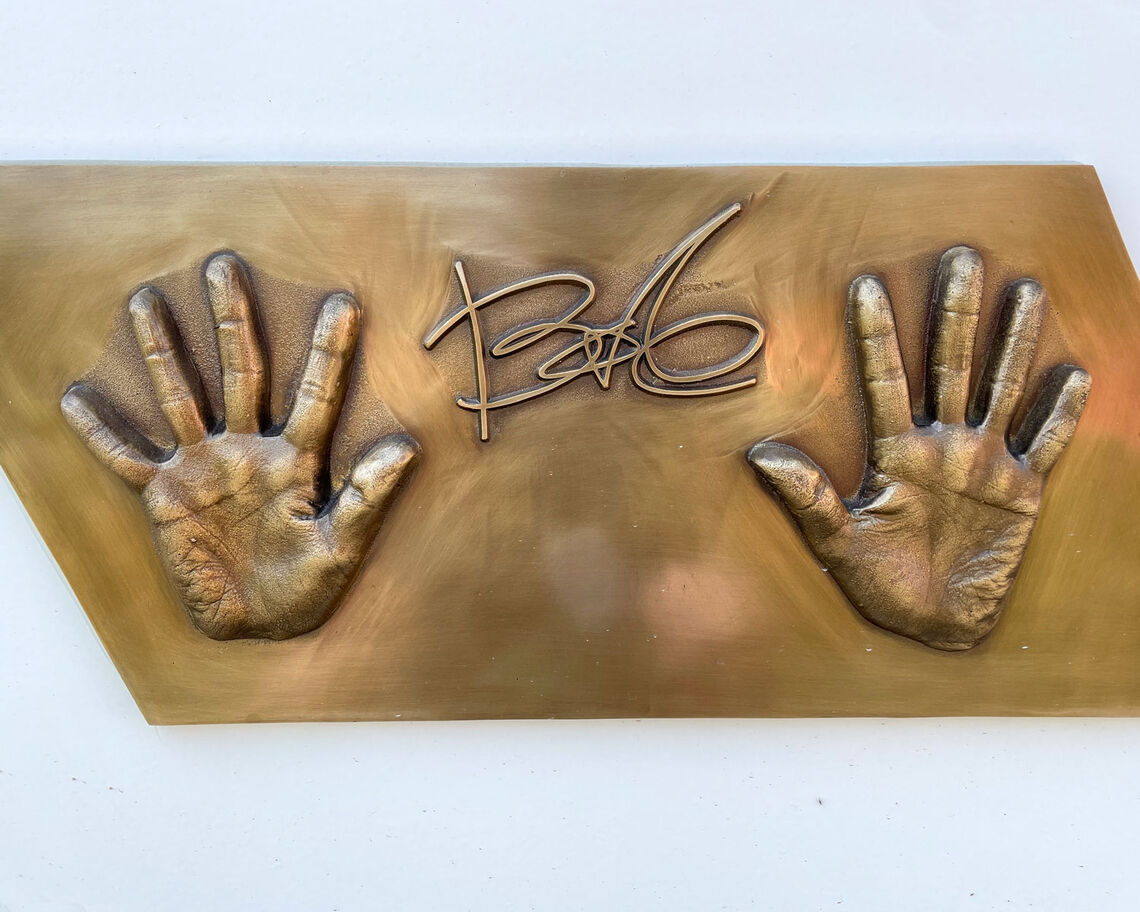
Handprint of London 2012 Olympic Champion Ki Bo Bae.
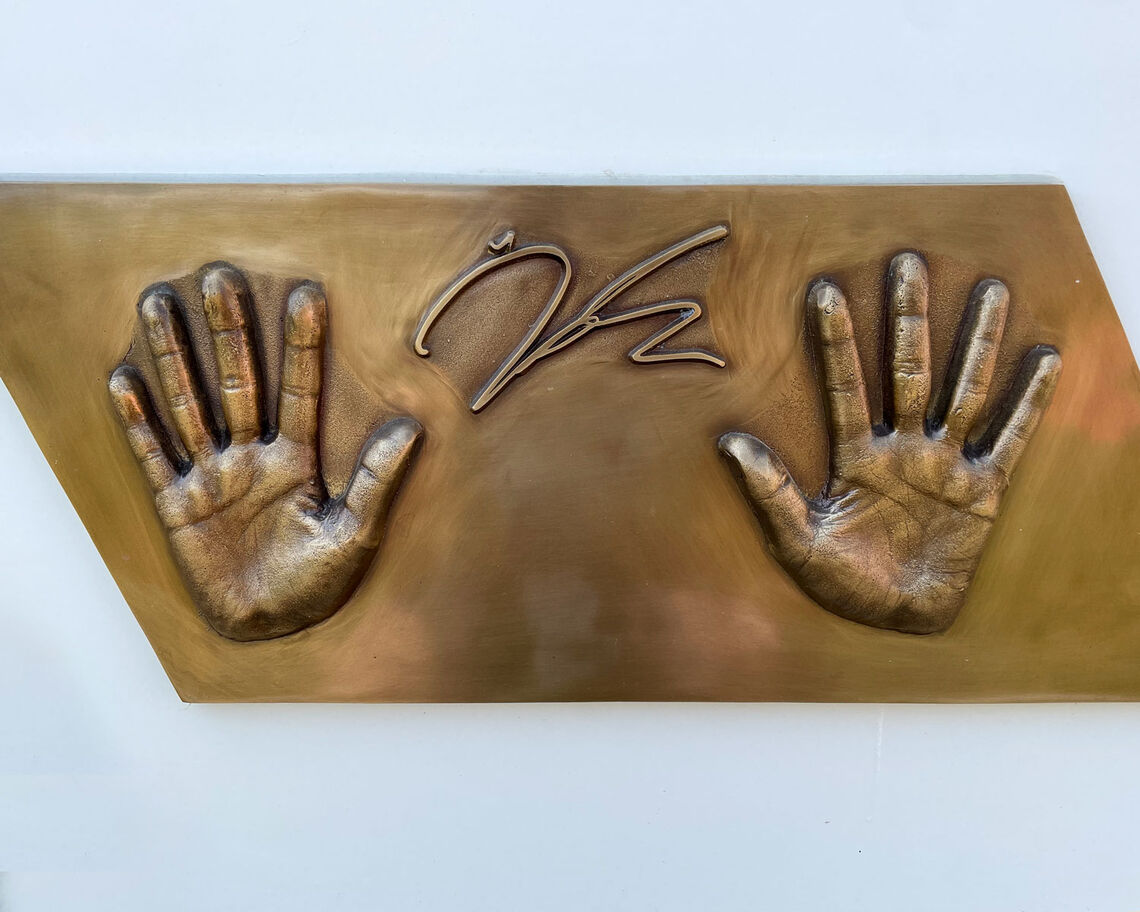
Handprint of Rio 2016 team gold medallist Choi Misun.
What’s the secret to archery in this city?
“We have many good coaches in Gwangju and they teach high-quality technique," said An Hyungseung, known as ‘Archie’, who is currently the head coach of the Gwangju professional archery team and who has a long history of coaching around the world. “There are teams in elementary schools, middle schools and at the physical education university. This programme helps develop archery.”
Gwangju stepped in to host last week’s event after it became impossible for Shanghai. The city is also scheduled to host the World Archery Championships in 2025. Jong Chan Yun is hopeful, however, of organising even more elite competitions.
“I need help from the Gwangju archery association and Gwangju city hall,” he said. “Every bit of support helps and then we can get new international competitions.”
There is passion for the sport in Gwangju. There is a long medal history, too – and this is a city which celebrates its home-grown success.
Three plaques were created at the university to celebrate the three Olympic gold medallists produced by the club. They’ve left a bit of space to the side to add more in future – the only question is, will it be enough?
Photo of Hyang-Soon Seo courtesy HSS Sport Academy.
